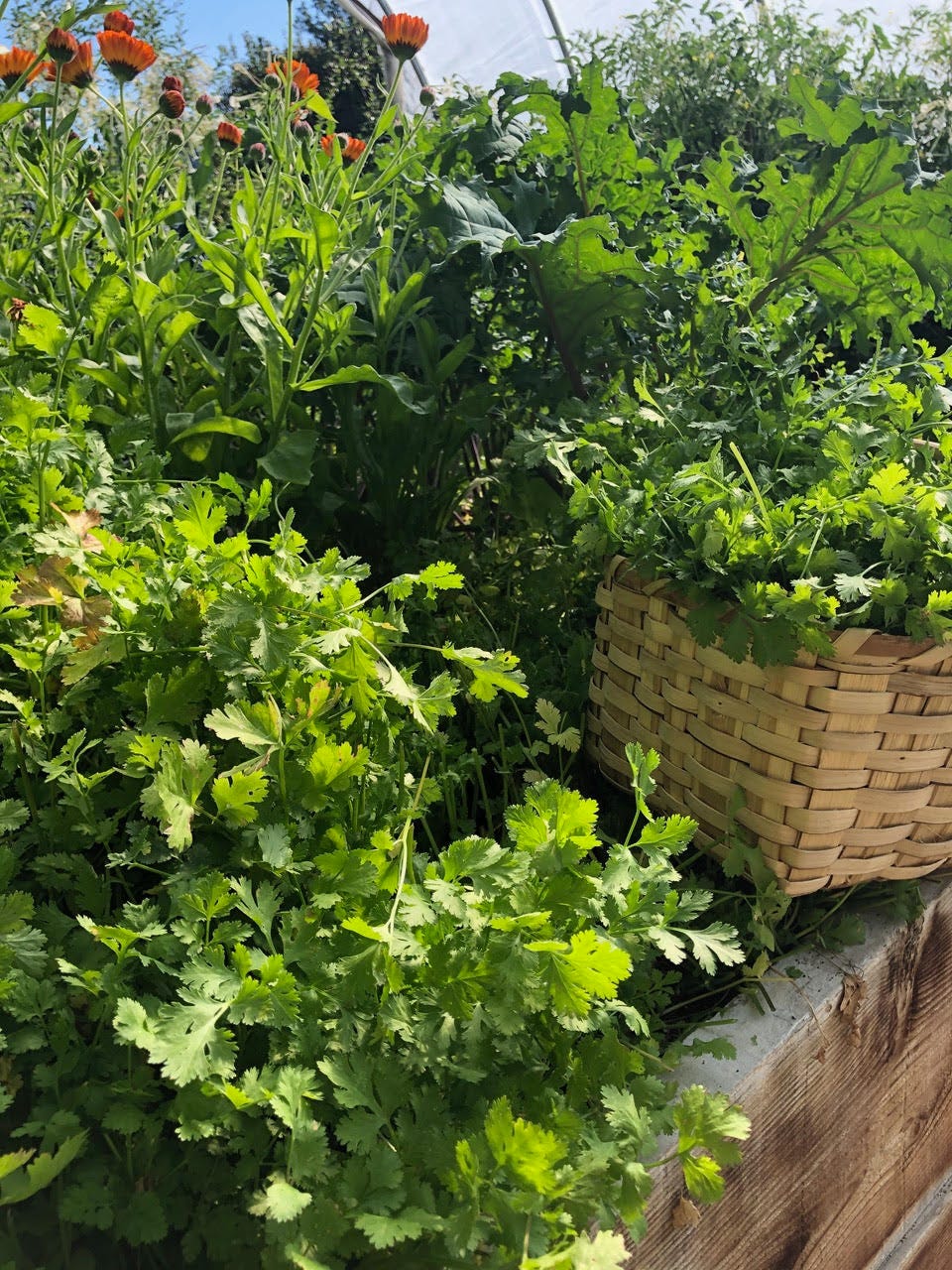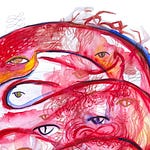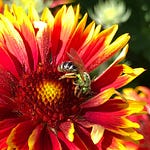Last Friday, I spent most of the day clearing last fall’s greens out of the cold frame—making space for this summer’s cukes—and processing and preserving the greens. My two year old helped me wash the greens. He liked pulling big handfuls of wet leaves out of the bucket and putting them in the salad spinner, and he loved the spinning. He wanted us to do that part over and over.
This year, over and over (because it does take patience!), I’m committing to finding ways for my son to be truly helpful in our tasks of householding, foraging, wayfinding, and gardening—so that his play encompasses real contributions to our joint projects. And, in turn, of course, his presence and spirit make so many tasks feel like play.
As
, co-founder of the The Fermentation School and writer at , reminds us in this episode of Kinward, “humans play to learn.” , Kirsten’s son, father of his own three kids, and founder of Project Beaver, adds, “I’m very interested in avoiding getting pigeonholed as an expert in anything, and” (to his mom) “I think you are too—because we’re not, we’re just playing in these spaces.”One powerful thread that runs through this conversation with (and between) the two of them affirms play as experiment, play as empowerment, play as a way of (re)learning our potential for attunement with life.
Mother and son both note early in the episode that the techniques they’ve built their careers around—techniques for fermentation and the stewardship of waterways—are ancient. So, their work is not about inventing anything, but rather playing, as humans do, to mimic, learn and relearn these ancient ways and wisdoms—ways of the land itself and its original stewards (beavers, Indigenous grandmas), and wisdoms of our ancestors all over the world who preserved their harvests in collaboration with the same microscopic allies who do so much for soil and water and for our bodies.

As I mentioned in the Immersion episode with the Shockeys, I wanted to talk to Jakob and Kirsten together because as soon as I met them I could feel the strength of the container they’ve woven together, as a family and with land, to hold their work in the world. We explore this beautiful and “sticky” (as Kirsten puts it) remembering of how to flourish in community, too, in this episode—acknowledging that the ruptures that have uprooted so many us (and the cultural stories that aggrandize autonomy) run deep, but that part of learning to nourish a world that sustains life is relearning how to nourish each other and our home places. Kinward Podcast is devoted to celebrating embodied expressions of kinship and interdependence; it feels great to model this value by inviting the living (and iterative) relationship between guests to breathe in the conversation.
The Shockeys also tease a book they are working on together: a collection of “fireside chats” about what it means and how it feels to “partner with beavers and value their works,” as Jakob puts it in the mission statement for Project Beaver. I can’t wait to see how this joint project makes its way into the world.
It was such a pleasure to revisit this wide-ranging, humorous, and yes, empowering conversation with Kirsten and Jakob. There’s literally a fire crackling behind them as we speak, and you’ll hear the rain drumming on their roof—just as the rain and wind have been drumming on my roof today, as I edit this episode, a couple of months after we spoke, as my own place and garden are waking up and filling my family’s days (and probably yours, too) with abundant opportunities to work—and play.
Last Friday, once the greens were all clean and ready to go, while my son was napping, I chopped and salted the five pounds of kale and sorrel, tatsoi and green garlic, and squished it all into a little half-gallon crock. In a couple of weeks, thanks to our friend lactobacillus, I’ll have tangy green kraut, the first ferment of the season.
Kraut was one of Fable’s first favorite foods. Back when he was just starting solids and trying everything, he’d spend a lot of time exploring the flavors and textures that emerge from our various crocks. He’s pickier now, but I’m hopeful (and I have good anecdotal evidence to suggest) that playing in the garden, planting seeds, and tugging radishes out of the soil will rekindle his appreciation for complex flavors.
Our place is too small to host beavers, but we too are playing with the water cycle—currently digging a pond and cattail bed to clean and redistribute our graywater and make it useful to life beyond ourselves.
For all these reasons, and today’s new moon, this feels like the right time to plant this very kin-centric seed of a conversation out into the world.
Gratitudes for this episode of Kinward include: to Kirsten and Jakob for many enlivening examples of cross-generational and cross-species collaboration; to the forest that mysteriously pops mushrooms up from the duff every spring; to my husband for digging the pond; to the first brood of starlings for fledging and moving out of the corner of my office, which has made it much more peaceful in here; and to all of you, for listening.
If you’re enjoying the podcast, please leave a review wherever you listen, follow @kinward_moves on Instagram, and consider upgrading to a paid subscription. For those of you who are already sustaining subscribers, thank you so much!



















Share this post